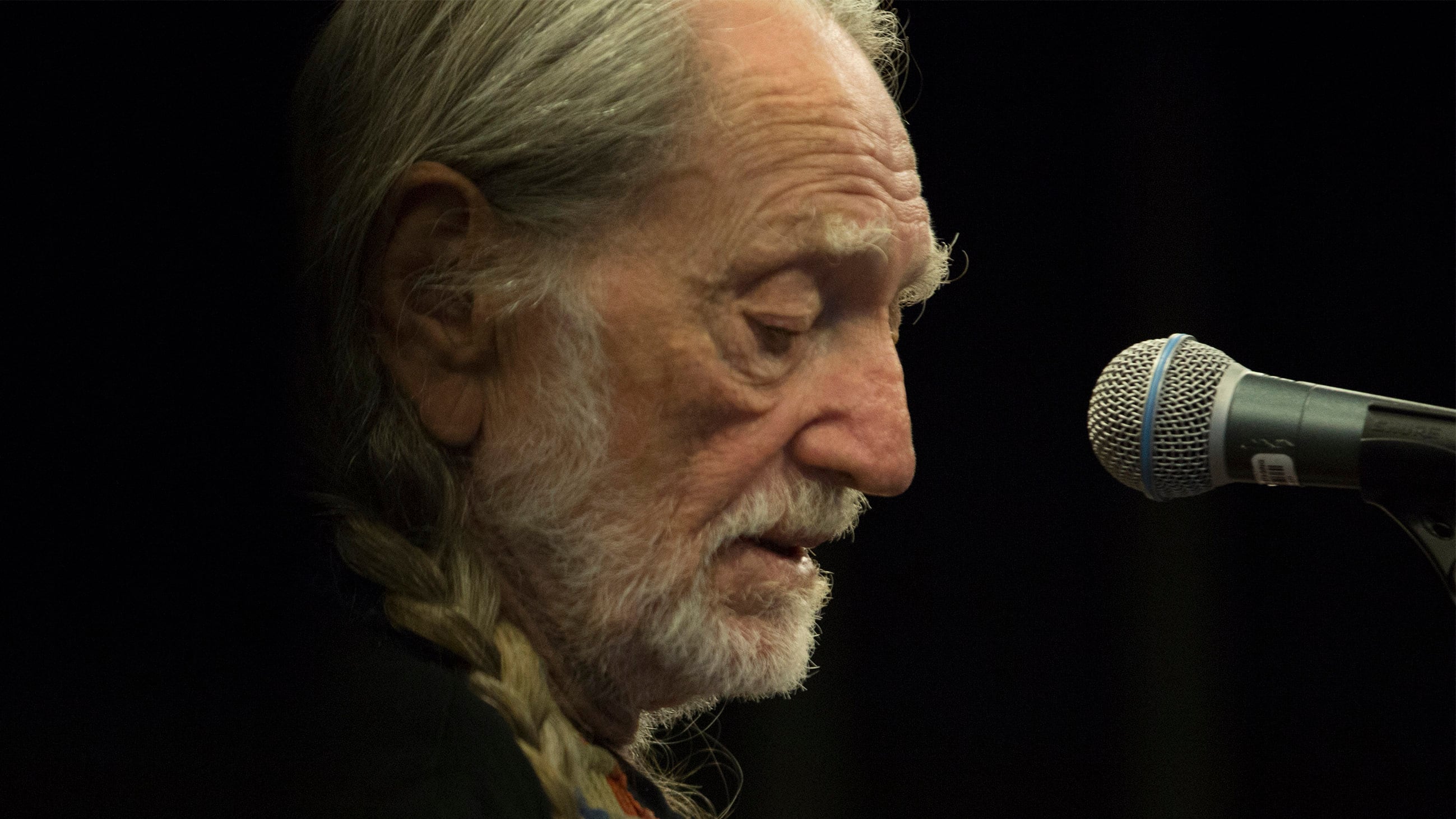Oregon has always thought of Willie Nelson as one of our own.
He lobbied the state legislature on behalf of medical marijuana. He invested in a local biodiesel plant. Block 15 brews Willie Nelson Blazey Pale Ale. And this week, Jackpot Records will reissue his debut album, the first time it's ever been re-released on vinyl.
…And Then I Wrote was recorded in 1962, well after several songs, such as "Crazy" and "Hello Walls," had already become hits for established artists. But Nelson's first single was actually cut five years earlier inside the studio of a Vancouver, Wash., radio station employing "Wee Willie Nelson" as their top country-music DJ.
If officially Texas' favorite son, Nelson's early artistry first took flight only after fleeing the Lone Star State for a roadhouse just this side of the Columbia River, where his mother worked as a bartender.
He had left the Pacific Northwest behind by the time his songs began climbing the charts, and his local lineage has been drowned out by the official histories. But the poet laureate of the American honky-tonk remains bound by blood to a tavern still serving the blue-collar locals of Goble, Oregon.
An unincorporated community midway between Portland and Astoria, Goble entered the 20th century as a vital timber hub featuring the second largest railroad ferry in the country. But the sole surviving remnants of past glories are the century-old grange hall and a bustling tavern not much younger.
From the back-patio stage to framed news articles commemorating the closure of the nearby Trojan nuclear plant, every inch of the Goble Tavern betrays some hint of a long and colorful past. At the behest of veteran bartender Phil Walker, Kathy Dalton Showalter, the daughter of the establishment's original owners, wrote out the story of the bar's single brush with greatness in the margins of an old menu stuck inside a photo album that usually floats around the barroom.

"My folks owned the tavern from 1952 until maybe 1964," the statement reads. "Mom ran the tavern and Willie Nelson's mom worked for her."
Although Nelson and his wife lived in Vancouver, he became a frequent guest. While Nelson had already begun sketching out the first few chapters of a legendary songbook, there's no report of any early performances, though that likely says more about the spirit of the age. Showalter told Walker that "everyone played in those days, everybody had a musical instrument—and it was just the employee's son, you know? Nobody would've paid attention because everybody was playing something."
Of course, he hadn't yet grown into the Willie Nelson we now know. According to Goble resident Harvey Meyers, whose father, Rusty, led "the best Western swing band in the Northwest," and often played at a defunct dance hall out on 82nd Avenue, Nelson expressed interest in sitting in with his dad's band, but his father refused because "he just couldn't stand Willie's voice."

"Now, a couple years go by, my dad's a disc jockey at KVAN over in Washington, and so is Willie Nelson. And my dad hated his guts," Meyers says. "No, really. I remember one time, sitting at the dinner table, my dad was just bitching. 'Goddamn, Willie—that whiny voice. He sounds like a stuck hog!' His voice, when he was a young kid like I was, just didn't appeal to anybody.
"God, it took a long time—really it did—but he wrote all these good tunes!" he continues. "A few years later, my dad's working three jobs as always, when I hear Patsy Cline sing 'Crazy,' and, man, I tell you what—that son of a bitch did it!"
***
Oregon clearly wasn't made for Willie Nelson.
Nelson's first single, 1957's "No Place For Me," sunk without a trace despite a lumberjack-themed B-side expressly pandering to Oregonian pride. The floundering talent confronted the limitations of a middling Portland market.
The saga of Boxcar Willie, whether fluffed by memoir or detailed in ever-more-derivative biographies, has always been spun as the lurid tour journal of an itinerant hell-raiser turned weed-puffing messiah. His sainted path toward enlightenment overflows with dives high and low. And yet, the Goble years have been formally disappeared from the public record.
Three years ago, when Howard Stern brought up his time in Portland, Nelson immediately corrected him with "Vancouver, Wash., right across the river." In a 1980 autobiography doubling down on his rough-and-tumble origins, he admits arriving in the Northwest largely to cadge money from his mother but glosses over the circumstances, merely noting she lived in Portland.
It's a baffling omission from the legend—all the more so because the Goble Tavern has not only survived the passing of the honky-tonk era but, until quite recently, emerged essentially unchanged.
But many decades after leaving the region, Nelson would have one more encounter with his Northwest past, though he'd never know it.
During their off-hours as Marines stationed at the Bremerton, Wash., submarine base, Ty Titus and Mark Engram jammed Nashville standards at the Goble Tavern on Sunday nights. Their country-rock band Lock Stock and Barrel soon turned that residency into gigs at the Crystal Ballroom, Hawthorne Theater and, in 2012, an opening slot for Willie Nelson at what's now Sunlight Supply Amphitheater in Ridgefield, Wash.
"Oh, we were absolutely thinking about the Goble connection," Engram says. "We'd talked about it. We were all ready."
Alas, they never got the chance to bring it up—their only interaction with Nelson involved their bassist asking about his golf game as he walked onstage.
From a certain perspective, the Goble contingent's most meaningful interaction with the legend that night came from longtime bartender Phil Walker's failed attempt at garnering a signature upon a hat that read "Historic Goble Tavern."
"There's a portion of the concert where Willie walks around the stage and signs autographs for everybody," Walker says. "I remember he was signing the bandana for the lady next to me when the security guy put the Goble hat on the stage. He was kinda looking down at it. And then he stood up straight, handed the bandanna back to the security guy, said, 'Goodnight, everybody,' and walked off stage."
"I know Phil was right up there with a Goble Tavern hat and Willie did not sign it," Engram recalls. "If it was something he didn't like, I'm not judging the dude."
Correction: An earlier version of this article misidentified the name of the nuclear plant near Goble. WW regrets the error.
HEAR IT: Jackpot Records' reissue of Willie Nelson's …And Then I Wrote is out Friday, Sept. 1. Preorder here.

